Welcome to the Mosaic Blog
Discover stories, insights, and inspiration from Mosaic: Interfaith Youth Action. This space is dedicated to exploring the powerful intersection of faith, community, and youth action. Dive into reflections from our programs, updates on our latest initiatives, and thought-provoking discussions about building bridges across differences.
Whether you’re looking for stories of transformation, tips for fostering interfaith dialogue, or updates on how we’re creating change in Boston and beyond, you’ll find it here. Join us as we celebrate diversity, share wisdom, and continue our mission to combat religious intolerance and promote unity.
Let the conversation begin.
Mosaic Blog Posts
Art Connects
February 2025Art has always had the unique ability to bridge gaps and connect people from all walks of life, helping people to share their stories and others to find the common…
Read MoreCircles of Action: Youth Coming Together Across Divides to Combat Hatred
February 2025This was originally written for the Interfaith Alliance’s Blog In today’s world, where division, hatred, and fear are increasingly prevalent, there is a growing need for spaces that bring people…
Read MoreEmpowering Youth Through Unity and Advocacy: Reflections on MLK Service Learning Day
January 2025On January 20th, 2025, over 80 young people gathered at Bethel AME for Mosaic: Interfaith Youth Action’s largest MLK Service Learning Day to date. The event was a vibrant tapestry…
Read MoreRising Above the Divide: Why Hope Still Matters in a World of Hatred and Misinformation
January 2025Division, misinformation, and hatred dominate the headlines, making it difficult to hold onto hope. As tensions rise and distrust spreads across communities, it sometimes feels like society is spiraling into…
Read MoreFaith and Citizenship
November 2024Earlier this month, millions of Americans participated in the nationwide elections, a privilege long fought for and greatly valued. Activities like voting, activism, organizing, petitioning, and speaking ensure that the…
Read MoreA Journey of Faith and Peace: Exploring Interfaith Connections at the ICCS
October 2024Standing among global leaders at the International Conference on Cohesive Societies (ICCS) in Singapore, I felt both the weight and potential of the moment. In a world increasingly fractured by…
Read MoreWhy We Need to Invest in Interfaith Youth Programming
August 2024In a world where division and misunderstanding seem to be growing, it’s crucial that we invest in programs that bring people together—especially our youth. Interfaith programming is one of the…
Read MoreThe Crucial Role of Philanthropy in Advancing DEI through Interfaith Organizations
June 2024In an era where the call for Diversity, Equity, and Inclusion (DEI) reverberates across all sectors of society, the role of interfaith organizations in fostering these values cannot be overstated….
Read MoreConfronting the Viral Nature of Hate: A Call for Collective Healing
May 2024In the wake of recent conversations with a close friend, I’ve been struck by the profound realization that hate — whether it manifests as antisemitism, Islamophobia, racism, or any other…
Read MoreFostering Harmony and Healing Through Youth Interfaith and Environmental Activism
May 2024In a world rife with division and discord, where headlines often highlight the chasms that separate us, it’s imperative to recognize the transformative power of unity. Nowhere is this more…
Read More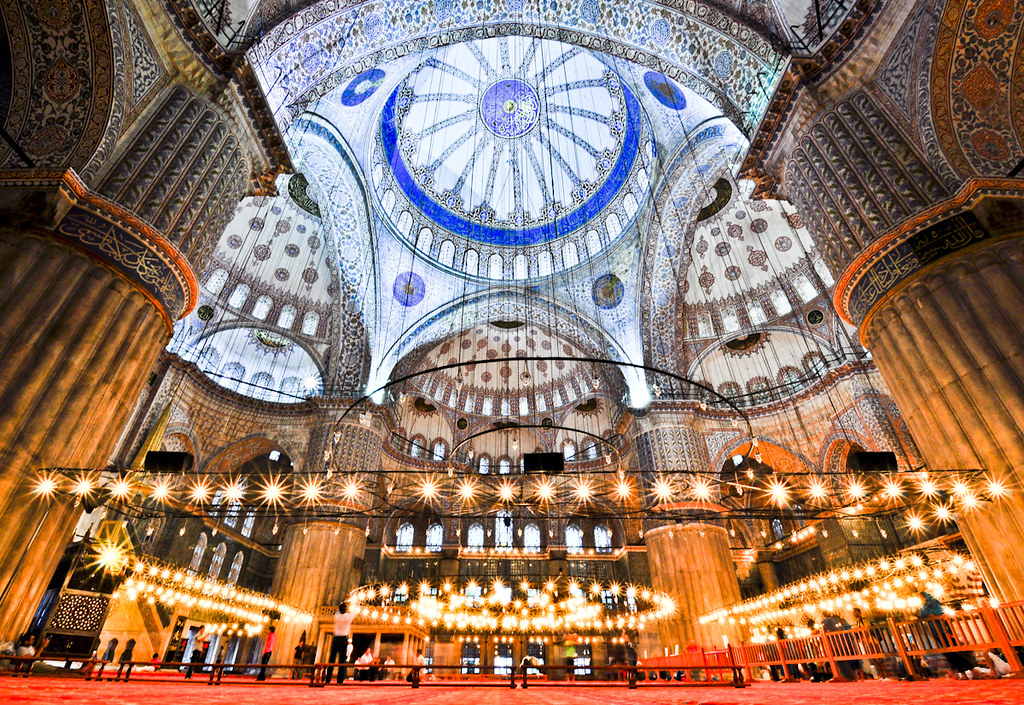
Art Connects
Art has always had the unique ability to bridge gaps and connect people from all walks of life, helping people to share their stories and others to find the common threads of the lived experiences of all humankind. By communicating experiences and emotions, art helps to foster understanding and empathy, creating a sense of community and belonging. Art has been used as a way to explore the simple and the deep – feelings of love, belonging, religion, friendship, and much more. Art is something that all can recognize, even across religious lines and the beauty of expressing one’s faith through art has been used as a conduit for shared experiences for centuries. 20% of UNESCO’s World Heritage Sites have a religious or spiritual connection and art is such a beautifully common practice that many can relate, regardless of religious beliefs and background.
Communities throughout history have taken great pride in their faith, something reflected in the art and architecture of their places of worship. Religious structures, such as grand cathedrals, mosques, and temples, are some of the most visited buildings, attracting visitors from all corners of the world. Some visitors are attracted to their religious significance and others, their history and artwork. Annually, millions of people travel to places like the architectural marvel of The Notre Dame Cathedral, the Hagia Sophia, the stunning Old Synagogue in Erfurt, and the sprawling Angkor Wat complex in Cambodia. These places of worship, with their intricate designs and rich histories, serve as testament to the ingenuity and artistry of past civilizations. Moreover, ancient places of worship that have become ruins, like the Acropolis in Athens or the Temple of Kukulican in Chichen Itza continue to inspire awe in visitors from around the world. The beauty, wonder, and significance of these places appeal to a wide audience and creates opportunities for encountering and celebrating diverse traditions across humanity.
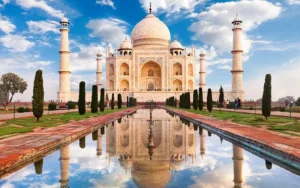
[Credit: Eight Secrets of the Taj Mahal: Lisa Cheng View here ]
The beautiful artwork and rich history of a place of worship can provide a unique opportunity for individuals to learn about a religious or spiritual practice that they might otherwise have access to. The intricate architecture, symbolic decorations, and sacred artifacts found within these spaces offer a glimpse into beliefs, rituals, and traditions. Visiting these religious spaces can be a deeply personal and transformative experience, allowing people to connect with a higher power, find solace, or seek spiritual guidance.
For others, visiting religious spaces may be part of a personal pilgrimage. Pilgrimages have been a part of human history for thousands of years, with evidence of such journeys found in ancient civilizations across the globe. A pilgrimage is a journey to a sacred place undertaken for religious or spiritual purposes. It is often seen as a way to deepen one’s faith, seek forgiveness, or fulfill a religious vow.
Acknowledging that places of worship can hold significance for millions beyond a single faith, helps us to recognize the shared value of these spaces. Visitors may want to explore their own spirituality, learn about a specific religious tradition, or even connect with people from diverse backgrounds. By uplifting and respecting these spaces we are able to celebrate a spectrum of different belief systems and ideologies, fulfilling a component of harmonious coexistence.
The beauty of architecture, art, and music within places of worship can transcend religious boundaries and be appreciated by people of all faiths, and none. Willa Cather stated that “Religion and art spring from the same root and are close kin” and art can foster conversations about theology and personal truths based in faith. It can be easier to engage with art and recognize beauty among different traditions and use those moments to discuss common human
questions and values across religions and cultures. Sharing art with each other can help us share our lived experiences. Art enables us to share our stories, perspectives, and lived experiences, fostering harmony and connection.
The Old North Church, an Episcopalian church in the North End, is famous for its role in communication ahead of the Battle of Lexington and Concord 250 years ago and testament to a pivotal moment in American history. Entering the church, visitors can learn what it was like to go to church in Boston hundreds of years ago, and what the church has meant to people over the years. It serves as a glimpse into the past and accessing religious spaces allows for visitors to come across the rich stories, history, and traditions of a community. It transports people to a different time, a different world, a different way of life.
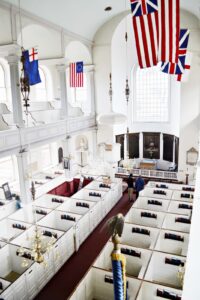
[Credit: Explore Inside the Old North Church in Boston: Aimee Tucker View here ]
Understanding what is appropriate, respectful, and allowed in a given culture is crucial when interacting with sacred spaces, practices, and the people who practice their spirituality there. Ultimately, not all sacred places, even major pilgrimage sites, are open to visitors. For instance, many sacred sites in Mecca, and certain sacred temples in other parts of the world, only permit entry to followers of that particular religion. Other locations may have specific rituals or areas that are restricted to members and, ultimately, recognizing the deep religious significance of spaces and understanding where you cannot go or what you cannot do can provide a valuable opportunity to learn more about a different tradition and what is important to the beliefs and practices of the people you encounter.
By respecting these boundaries and demonstrating a willingness to learn, you can engage with different cultures and spiritualities in a meaningful way, fostering greater understanding and appreciation for the diversity of human experience. Shared experiences, exchanges of values, and dialogue are essential for fostering understanding and empathy between diverse religious communities. By engaging in moments of cultural, religious, and spiritual exchange, individuals from different faiths can learn about each other, dispelling stereotypes and misconceptions that often fuel divides and keep barriers in place.
Mosaic’s goal is to foster a more peaceful, just, and inclusive society where people of all faiths can coexist harmoniously. By recognizing and celebrating our diversity, we can build bridges of understanding and create a world where everyone feels valued and respected. Through the exploration of religious art and spaces, we celebrate the multicultural tapestry of our world.

[Credit: Mosaic: Interfaith Youth Action]
Author, Carter Brannon
Editor, Kimberly Mack
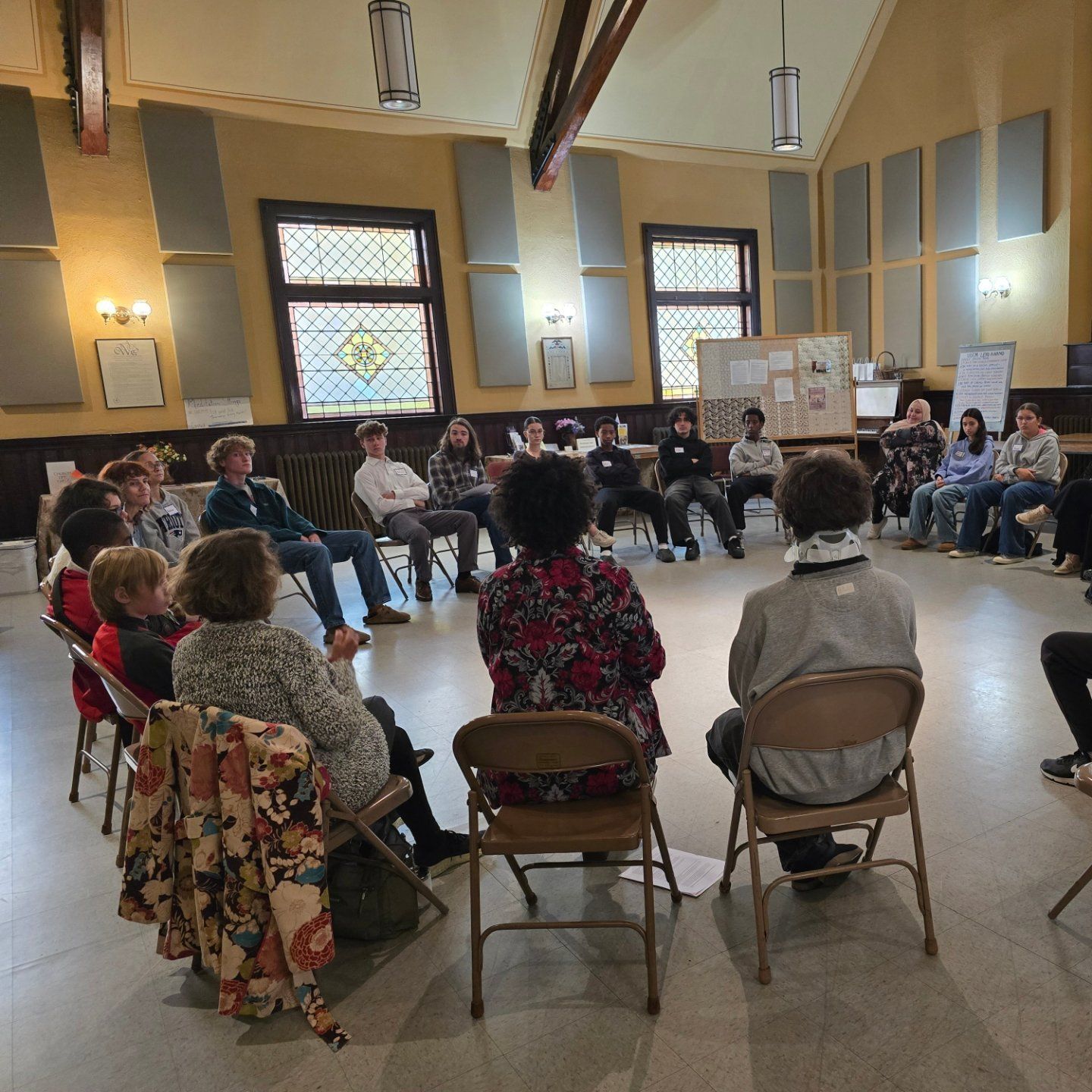
Circles of Action: Youth Coming Together Across Divides to Combat Hatred
This was originally written for the Interfaith Alliance’s Blog
In today’s world, where division, hatred, and fear are increasingly prevalent, there is a growing need for spaces that bring people together, especially young people from different backgrounds, beliefs, and experiences. At Mosaic: Interfaith Youth Action, we believe that one of the most powerful tools in overcoming hatred is connection. That’s why we are so proud of our Circles of Action program, a transformative initiative that brings youth together across religious and cultural divides to actively combat intolerance, challenge prejudice, and build a future of shared understanding.
The Circles of Action program is grounded in the belief that when young people are given the opportunity to connect on a deep, personal level, they can break through the walls of fear and suspicion that divide them. By engaging in meaningful dialogue, collaborative projects, and shared service activities, these youth leaders not only learn about one another’s faiths and cultures, they build lasting relationships and take concrete steps toward creating a more inclusive, just world.
At the heart of Circles of Action is the combination of dialogue and action. We know that real change comes when young people not only talk about what divides them but actively work together toward a common goal. In our program, youth from diverse religious and cultural backgrounds come together to engage in discussions about their experiences with hatred, prejudice, and fear. These conversations are structured to foster empathy, understanding, and a commitment to mutual respect.
However, we also know that words alone aren’t enough. Youth participants move from dialogue to action through community service projects and initiatives aimed at making tangible differences in their neighborhoods. Whether it’s addressing homelessness, advocating for environmental justice, or supporting refugees, these young leaders are not just talking about change, they are creating it.
The Circles of Action program fosters leadership by giving youth the tools and support they need to drive positive change in their communities. Our goal is to empower young people to become advocates for justice, equality, and interfaith understanding. By providing opportunities for them to lead discussions, plan projects, and engage with their peers, we are building a community of young leaders who are equipped to combat hatred wherever they encounter it.
These youth aren’t just working toward a better future, they are the leaders of tomorrow, showing us that the next generation is ready to rise above the forces of division and make the world a more connected, compassionate place.
Hatred thrives on fear and ignorance, but the antidote is connection. In a time when religious intolerance, racism, and bigotry continue to affect many communities, Mosaic’s Circles of Action demonstrates the power of youth-led action to address these challenges head-on. By coming together, learning from one another, and working toward a common cause, our youth are proving that they have the power to transform fear into understanding and hatred into love.
As we continue to grow and expand this program, we are hopeful that the Circles of Action model will inspire other communities to create their own spaces for interfaith dialogue and collaborative action. The future of our society depends on the ability of young people to overcome the divides that exist between us. Through initiatives like Circles of Action, Mosaic is proud to be part of a larger movement that fosters understanding, compassion, and unity among the next generation.
At Mosaic, we are committed to continuing to invest in these future leaders because we know that they are the ones who will shape the world of tomorrow. By helping them come together across divides, we are ensuring that the fight against hatred is not just a battle of today, but a movement that will carry on for generations to come.
If you are interested in supporting Mosaic’s mission and learning more about how you can get involved in initiatives like Circles of Action, we encourage you to reach out. Together, we can make the world a place where unity, compassion, and understanding take center stage.
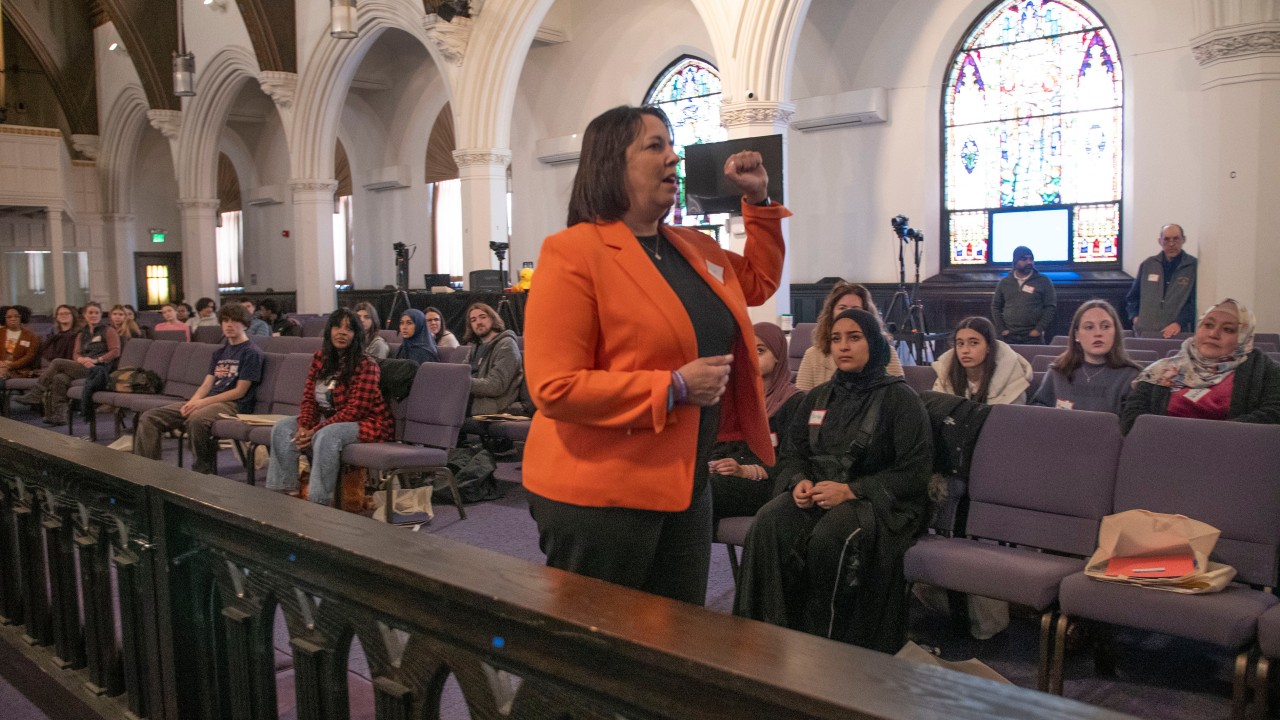
Empowering Youth Through Unity and Advocacy: Reflections on MLK Service Learning Day
On January 20th, 2025, over 80 young people gathered at Bethel AME for Mosaic: Interfaith Youth Action’s largest MLK Service Learning Day to date. The event was a vibrant tapestry of diverse youth leaders representing various faiths, races, genders, and backgrounds. These young voices joined together not only to honor the legacy of Dr. Martin Luther King Jr. but to embody his vision of a world united by justice, peace, and equality.
This year’s program was extraordinary, with participants packing over 100 bags of essential items for individuals resettling in Massachusetts, engaging in deep discussions on immigration, and using their voices to advocate for legislation such as S. 99. The presence of Lieutenant Governor Kim Driscoll, who addressed the youth during the opening session, underscored the importance of their efforts and the potential of their collective power.
One of the most inspiring aspects of the day was the religious diversity present in the room. Young people from all backgrounds came together in a shared mission. They brought their unique perspectives, rooted in their faiths and traditions, to conversations about equity, inclusion, and systemic change. It was a living demonstration of interfaith cooperation—an embodiment of Dr. King’s dream that people of all beliefs can unite for the common good.
Religion is often seen as a dividing force in the world, but events like this prove it can also be a bridge. Faith traditions universally emphasize compassion, justice, and service, and when young people channel these values collectively, they create a powerful force for change. By working alongside peers from different religions, participants gained a deeper appreciation for their shared humanity and the common values that unite them.
The youth didn’t stop at dialogue. They put their beliefs into action. Through hands-on service and advocacy, they demonstrated how the principles of their faiths can address urgent societal needs. The letters they wrote to the Senate Ways and Means Committee about S. 99 are a testament to their commitment to justice and their understanding of civic engagement as a form of service.
The day reminded us that the future lies in the hands of these young leaders. Their ability to listen, collaborate, and take action offers hope in times of division. As they packed bags, wrote letters, and discussed pressing issues, they exemplified the power of unity in diversity.
Mosaic: Interfaith Youth Action is proud to have provided a space for this transformative experience. Events like MLK Service Learning Day are not just moments of reflection but catalysts for sustained action. They show that when youth of all faiths, races, and identities come together, they can move mountains—and make Dr. King’s dream a reality.
As we move forward, let us continue to invest in programs that empower our youth to build bridges, amplify their voices, and act as agents of change. The future depends on their ability to lead with empathy, courage, and conviction.
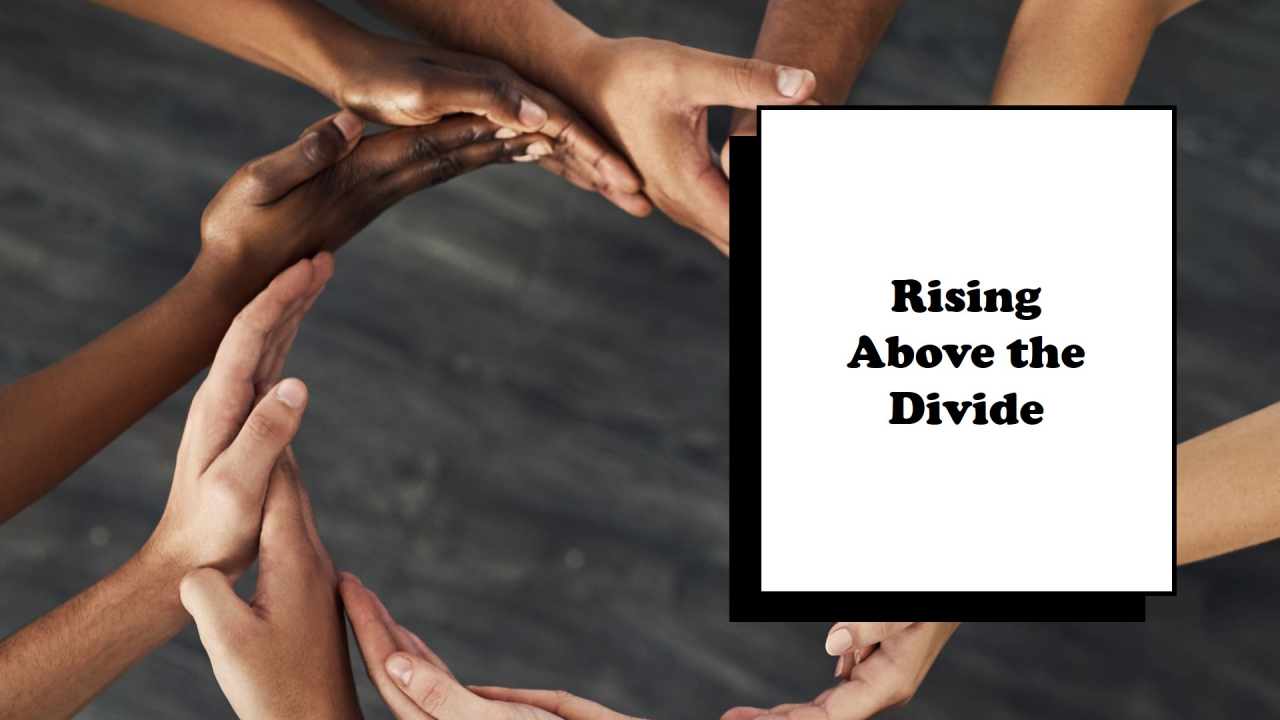
Rising Above the Divide: Why Hope Still Matters in a World of Hatred and Misinformation
Division, misinformation, and hatred dominate the headlines, making it difficult to hold onto hope. As tensions rise and distrust spreads across communities, it sometimes feels like society is spiraling into unresolvable conflict. Hostile rhetoric, false narratives, and targeted attacks on vulnerable groups seem more common than ever, leaving many feeling disillusioned and powerless. Yet, even in the midst of this chaos, there are still reasons to believe in the possibility of change. There are moments of light, small acts of kindness, and people working every day to build understanding and foster connection. These are the things that continue to bring me hope, despite the overwhelming challenges we face.
There’s no denying that the world has become more polarized. With social media and the rapid spread of information, it has never been easier to access news and opinions. Unfortunately, it has also never been easier for falsehoods, half-truths, and hate-filled narratives to spread like wildfire. Algorithms designed to capture attention often amplify outrage and sensationalism, rewarding content that generates emotional responses over thoughtful discourse. This has allowed misinformation to flourish and has created echo chambers that reinforce our worst fears, biases, and prejudices.
From the rise of conspiracy theories to the spread of hate speech targeting marginalized groups, it’s as if society has embraced a new normal where truth is subjective, and kindness is often overlooked. We’re bombarded with conflicting information, much of it designed to stoke fear and division, which leaves many of us feeling lost, confused, and powerless.
The political landscape has played a key role in fanning these flames. Recently, we’ve witnessed an alarming rise in executive orders and political decisions that have targeted vulnerable communities—immigrants, refugees, racial minorities, LGBTQ+ individuals, and religious groups. These unjust actions have fueled a climate of fear, hostility, and division, as certain populations are unfairly scapegoated and marginalized. When political leaders prioritize policies that demonize the most vulnerable, it sends a message that hate and discrimination are not only tolerated but are, in fact, part of the political discourse. This has created a dangerous feedback loop where misinformation thrives, fueling the divisions that separate us further.
In the face of such overwhelming negativity, it’s easy to wonder why more people don’t speak out or push back. Why do so many remain silent when hate, misinformation, and division are so rampant? The reasons are complex, and there isn’t one simple answer. For some, the silence comes from fear—fear of retaliation, fear of being labeled or ostracized, or fear of getting caught up in the storm of controversy. In some cases, people may feel overwhelmed by the sheer scale of the problem and unsure of how to make a meaningful impact.
Silence is the normalization of negativity. When hostility and misinformation are repeated enough, they begin to feel like the status quo. In these moments, it’s easy to feel as though speaking out is futile or that the problem is too big to change. However, silence in the face of hatred often becomes complicity, and it’s critical that we push past our fears and anxieties to find our voices in times of crisis.
Despite the challenges we face, I believe that hope is found not in ignoring the darkness but in actively choosing to be a light. What brings me hope is the countless individuals and organizations who work tirelessly to foster understanding, kindness, and truth in their communities. It’s the educators, the activists, and the everyday people who refuse to stay silent, even when their voices may feel small. It’s the conversations happening around dinner tables and in classrooms, where people are pushing back against the forces of division and seeking to build a better world based on empathy, compassion, and understanding.
I find hope in the younger generations who, in the face of adversity, are more committed than ever to speaking out against injustice. Their passion for social change, for standing up for the oppressed, and for building a future that values truth over manipulation is contagious. I also find hope in the many interfaith initiatives, the grassroots movements, and the community leaders who understand the importance of connection and collaboration across cultural, racial, and religious divides. These efforts, though often unheralded, are quietly shifting the narrative and proving that kindness, understanding, and truth still have a place in our society.
Most importantly, I am hopeful because I believe in the power of small actions. Every time we choose to be kind, to listen, and to challenge misinformation, we contribute to a greater collective shift. Even in the face of widespread negativity, these acts of goodness have the power to ripple outward, touching lives and spreading hope where it is needed most.
Yes, our world is in a difficult place. Misinformation, political division, and hatred seem to have a powerful grip on many corners of society. From unjust executive orders to the intentional targeting of vulnerable communities, we are living in a time where fear and division often seem to dominate the conversation. And yet, in the face of all this, we must continue to look for hope in the spaces where kindness, truth, and compassion still thrive.
Hope is not about ignoring the struggles we face, but about finding strength and purpose within them. It is about looking past the noise and remembering that love, truth, and compassion are forces far stronger than hate or misinformation. In a world that often feels like it is turning against itself, we have the power to turn things around, one action, one conversation, and one voice at a time. And that, in itself, is what brings me hope.

Faith and Citizenship
Earlier this month, millions of Americans participated in the nationwide elections, a privilege long fought for and greatly valued. Activities like voting, activism, organizing, petitioning, and speaking ensure that the people of America can work together to make the Union and its communities better, according to the desires of the people. Voting is one of many ways citizens can express their beliefs and values in a way that can impact their communities.
In addition to the right to vote, one of the fundamental rights Americans have is the freedom of religion. For many people of faith, civic engagement is intertwined. Across religious backgrounds, faith communities often create places where people with shared values can teach their ideals to one another and pass them on to future generations. These values can inspire them to make a difference in their wider communities.
Within the Mosaic: Interfaith Youth Action community, many of the community leaders, families, and collaborators we work alongside reminds us of the importance of not only civic engagement but also facilitating conversations about how faith can be a foundation for activism and engagement.
Mosaic’s Circles of Action volunteer and Director of the children’s program at the Unitarian Universalist Church of Medford, Mimi Olivier, says her Unitarian Universalist faith and passion for civic engagement are completely intertwined. Both her faith and engagement are centered on her values of social justice, inclusivity, open-mindedness, and supporting her community. “I think for Unitarians [civic engagement is] very natural, and Unitarians tend to be active in social justice and political issues,” Olivier said. “I think that’s very much part of who we are as a faith.”
Olivier explained that Unitarians do not have any doctrine, and their congregations contain people with a wide range of beliefs. What unites them are their values. “Our theology is really about values and how to treat one another. We believe in healing the world, accepting differences, and promoting justice. For us that is the theology by which we live, so it’s really part and parcel of who we are.”
The Unitarians’ commitment to values and community engagement is something that draws people to Unitarianism. Olivier recalled that it was her civic values that led her to the Unitarians, who she felt would be a good home for her daughter who wanted to explore spirituality.
“I’m a very long time political activist, so those values have always been a really, really big part of my life,” Olivier said. “I did not grow up with any religious instruction or community, and I really never missed that. And then, and I think this is actually really common for Unitarians, when I had a daughter, my daughter was looking for something. For many people when they have kids. They might have been political and then they have kids and suddenly they want a different kind of community, a spirituality for their kids, but other people like me, my daughter asked for it.”
Faith as a foundation of how to treat one another is a value shared by many others. “All of my politics and belief in how we should treat each other is very much rooted in Judaism and the ideas of the Torah and the Prophets and all that kind of stuff,” Josh Conescu, facilitator for the Jewish Studio Project and collaborator for Mosaics’ Bridges program explained. “Everything for me always goes back to something Torah related or Talmud related. When I hear myself saying that it almost sounds cliched, but it’s true. That’s one of the things I find beautiful about Jewish thought.”
For some, the values rooted in sacred texts offer a way to approach political and personal questions in their lives. Knowledge and study of scriptures can be a source of reflection on the values that inform their perspective. Conescu says he has strong political opinions rooted in his faith and the values expressed in Jewish scriptures, is at the heart of his worldview, extending into his political views and activities.
There is a part in The Book of Isaiah, Conescu explains, where “people come to Isaiah and say what does God want from us? I say my prayers. I fast on the holidays, and I do all these things I’m supposed to do, and yet I don’t feel like God is listening to me.” Conescu paraphrases “and Isaiah has this thing where he says, basically… the fasting that you’re doing. I don’t care about that. Are you being kind to people? Are you paying people the wages you owe them? If you see a poor person, or a hungry person, or somebody in trouble, are you helping them?”
“It’s not about saying your prayers and trying to be faithful to the Ten Commandments or whatever. It’s not about following the words so much, as it is doing the things the words tell you to do. Are you loving your neighbor as yourself? Are you treating people kindly? Are you giving to those in need? And that to me, it’s not specifically Jewish, it’s the right way to act.”
Waffa Wahabi speaks just as succinctly about this notion of how faith is tied to community. “We have a verse in the Quran… which translates to ‘and we sent you as mercy to all mankind’ and that, for me, means that whatever you can help with the community, [and] the environment, anything that you are able to change for the better is your responsibility.”
Waffa Wahabi, the Youth Director at the Al Huda Society, an Islamic center in Chelsea, has worked closely with Mosaic to share these values with our community while uplifting the similarities in values across many faith traditions to take responsibility for our community. One thing Wahabi perceives in her faith community is that people are becoming more open to being politically active as they learn more about what they can do.
“In my congregation, you have a good number of members that come usually to the center that are immigrants,” Wahabi observed. “Their perception of politics is different because they bring with them that understanding that they had with politics overseas, and that’s a different perception to what we have here.”
“Some people believe either [that if] they vote or don’t vote, it wouldn’t make a change. But that perception is changing with time. I can tell people, Muslims from congregations like the one I work with, are more involved, are willing to be part of the community at large, and be involved at least with the votes in elections. I would say decades ago, there would be no interest, or at least it would be very minimal. I guess they are changing their perception because they understand the importance of being involved in the decision making, and being able to voice their concerns.”
Wahabi is particularly passionate about getting young people involved in their community. She is a highly respected mentor and teacher in her congregation, and participates with her youth in Mosaics’ Circles of Action and Bridges program. She sees it as important and impactful to help youth understand that their voices matter and that coming together only adds to the richness of our community.
“When [youth] understand, why is this important: to be politically involved, they are more keen to be part of it. But when they don’t understand the purpose of it, they wouldn’t be interested.” The Mosaic mission is to be a bridge to connect the youth of Boston and the surrounding communities together, providing opportunities to develop the skills of a community changemaker. With faith as a foundation, youth gain a deeper understanding of community ownership and involvement. This approach helps shape future leaders who are rooted in their beliefs, able to uplift other faith traditions, and recognize the importance of equity and inclusion to respect the diversity of our community.
Many traditions’ scriptures are influential to peoples’ values and engagement with their community. Shweta Sharma, Mosaic parent and Service Learning Day participant, says the core principles of her Jain faith, especially nonviolence, guide much of her life. Jainism teaches to avoid hurting other life, and Sharma says she lives that out in her community by supporting organizations that promote vegetarianism and oppose harming animals, as well as seeking ways to reduce her harm to the environment.
For Sharma, equity and inclusion are also important expressions of her Jain values, and essential to making sure people are not hurt. She believes that equity for women and minority populations ensures that everyone feels treated fairly and benefits. “If you leave out one ethnicity or one socioeconomic category of population, there’s a bias then of who gets the benefit of [a] particular policy, and that will leave someone feeling left out and left out means feeling hurt.” Sharma says her faith rarely directly talks about politics, but its values and teachings indirectly inspire her and others to be active.
“The temple doesn’t talk about politics,” Sharma observed. “We don’t urge you to [vote] or necessarily take a tally of who did or didn’t do it but, most of the people I know in my circle who were citizens and go to the temple did vote.” Sharma attributes the importance of voting to her faith teaching her that life is an opportunity she has been given. It is important to do the best she can with it. Voting is an opportunity she is given to have a voice in her community, and she feels she ought to use what she is given.
“Our religion also teaches you you’ve been given this life. [If] you’re able, you don’t have a handicap, you’re financially stable, you have a roof and food, [then] you are much better off than so many other people who have hardship,” Sharma explained. “Indirectly, there’s that lesson for you to take. If you don’t vote, you don’t have a voice. You’re not making a choice. You’re not living a full life. Just the fact that… you’ve been given this opportunity to make an impact should drive most people. It’s an indirect message you see. If you believe that [you] need to do the best today because [you’re] in a place of benefit, then by not voting you’re doing less. You’re not doing the most you can.”
For Trinity Church in Northborough, Reverend Will Seals explains “We have a saying at Trinity Church: ‘No matter who you are or where you are on life’s journey, you are welcome here.’ That includes people who have diverse political beliefs. Being a pastor, I want to maintain a non-partisan stance where I can.”
Rev. Seals believes in justice, and while he does maintain a neutral political stance, it’s to balance his religious duties in a congregation open to people of diverse perspectives. “Our church opens its doors to many community groups, and I’m sure there are individuals who come here with a variety of beliefs, political and otherwise,” Seals explained.
Seals acknowledges that his non-partisan stance is not universal to Christian pastors. He grew up with and has known many very politically active Christian religious leaders. “I grew up in Black Baptist churches in Brooklyn, NY and Austin, TX. At my church in Brooklyn, my pastor, Rev. Dr. William Augustus Jones, Jr., was a civil rights and community activist. While he wasn’t involved in politics as an elected official, he did speak out about political and social justice matters,” Seals recalled. “In Austin TX, during election season we would get a few politicians who would come through during the worship service to introduce themselves to the congregation and ask for their support. In 1992, during the presidential primary season in Texas, I met and shook hands with then-Gov. Bill Clinton, who was there asking for votes and support. The pastor’s wife, Mrs. Hazel Obey was active in Democratic Party politics in Texas, so I think that’s why politicians came to visit.”
One thing Seals believes strongly in is human rights, having advocated in Washington, DC and in New York for issues related to religious liberty and marriage equality. He acknowledges his faith, along with Thomas Jefferson at the founding of our country, teaches that God created people equal with natural rights to life, liberty, and the pursuit of happiness. Human rights are an extension of that.
Many of the youth in Mosaic’s programs are learning how to live out their values and work together with others to make a difference in their community. Therefore, it is the job of community leaders to model the values they hold in order to instill them in the future community changemakers they support. Mosaic is driven by the notion that each youth has a voice worthy of being heard and it is in our programs that many youth of Boston find their own voice and passions for community. Mosaic community leaders, families, and collaborators remind us that
we are all the foundations that future generations stand upon to learn and grow, and it is through our collective efforts and shared values that we empower the next generation to lead with purpose, compassion, and a commitment to positive change.
Author, Carter Brannon
Editor, Kimberly Mack
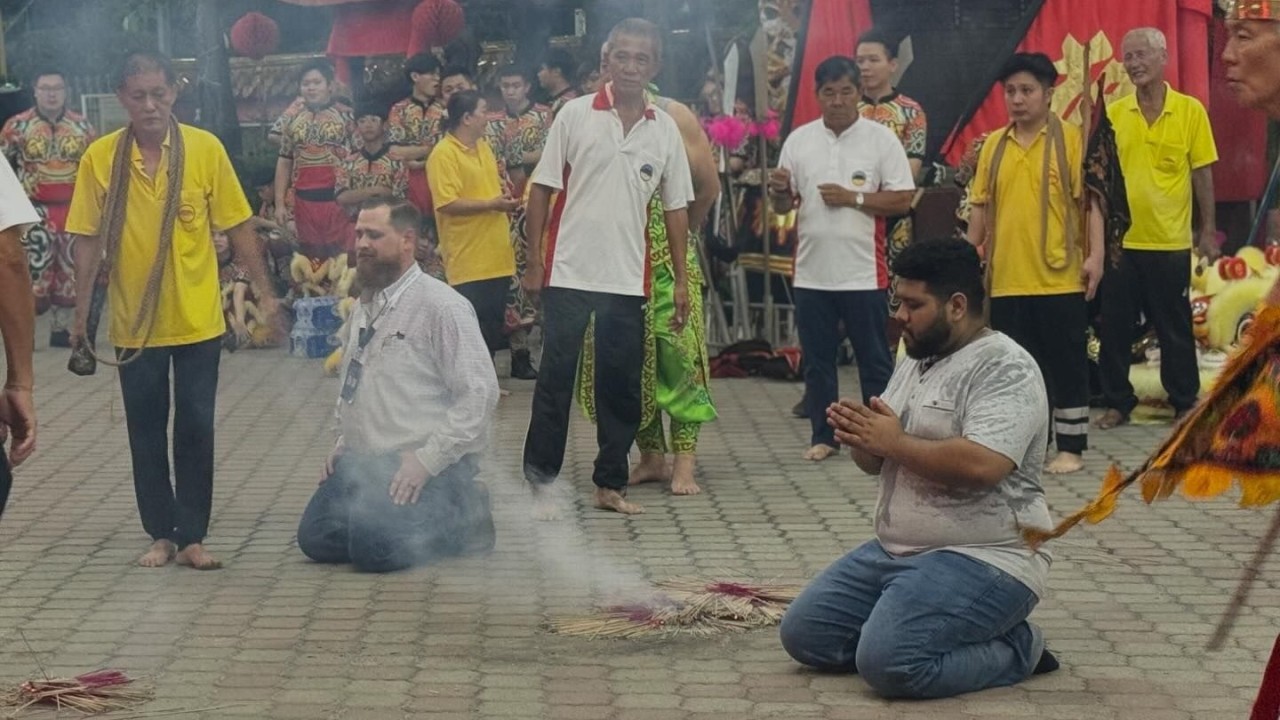
A Journey of Faith and Peace: Exploring Interfaith Connections at the ICCS
Standing among global leaders at the International Conference on Cohesive Societies (ICCS) in Singapore, I felt both the weight and potential of the moment. In a world increasingly fractured by religious and cultural divides, this gathering was a powerful reminder that dialogue and collaboration can still bridge differences. As the Executive Director of Mosaic: Interfaith Youth Action , I came seeking new ways to heal these fractures—and what I found was a community committed to peace, resilience, and the transformative power of understanding.
The ICCS Inter-Sessional Event, themed “Inspiring Cohesive and Resilient Societies,” emphasized the importance of intersectionality in fostering resilient communities. We explored how diverse identities—whether based on religion, race, or culture—can serve as sources of strength, uniting people rather than dividing them. These discussions were particularly relevant in today’s context, where rising antisemitism, Islamophobia, and religious intolerance create new challenges for social harmony. This framework of dialogue and multiculturalism directly aligns with Mosaic’s mission of empowering youth to navigate and heal divides within their communities.
One of the most profound moments was visiting the Tampines Chinese Temple, where I experienced the deeply spiritual tradition of Tangki culture—a practice of mediumship where individuals serve as spiritual conduits. The temple’s leaders warmly welcomed me, engaging me in their rituals and offering me a blessing. This act of inclusion reminded me that interfaith engagement isn’t just about discussion; it’s about experiencing and respecting each other’s sacred traditions, creating connections that transcend differences.
In addition to the rich cultural experiences, the ICCS focused heavily on mediation and conflict resolution training. These skill-building workshops demonstrated practical strategies for resolving conflicts rooted in cultural or religious differences. These are the very tools we aim to equip Mosaic’s youth with, empowering them to act as agents of peace within their communities. The ability to mediate, listen, and engage in productive dialogue is vital for navigating today’s complex social and political landscape.
The event also explored the geopolitical challenges affecting social cohesion globally, particularly the ongoing conflict in the Middle East and its impact on rising antisemitism and Islamophobia. These conversations reaffirmed the importance of Mosaic’s work, as we actively confront these rising tides of intolerance. At Mosaic, we’re deeply committed to providing young people with the tools to engage in interfaith dialogue and stand as allies for one another in a world that too often divides us along religious lines.
My time at the ICCS Inter-Sessional Event was a powerful affirmation of the importance of cross-cultural collaboration and dialogue. I left Singapore inspired by the global efforts being made to foster social cohesion and eager to bring these lessons back to Mosaic. Whether through interfaith dialogue, artistic expression, or community service, we will continue empowering youth to lead the way toward building bridges and fostering peace.
I am deeply grateful for the warm welcome I received in Singapore, particularly the inclusion and respect shown at the Tampines Chinese Temple. The lessons learned from this experience will undoubtedly strengthen our work at Mosaic as we remain committed to creating resilient, cohesive communities. Now, more than ever, our work to bring people together across divides feels urgent and essential. Together, we can build a future rooted in mutual understanding, peace, and unity.
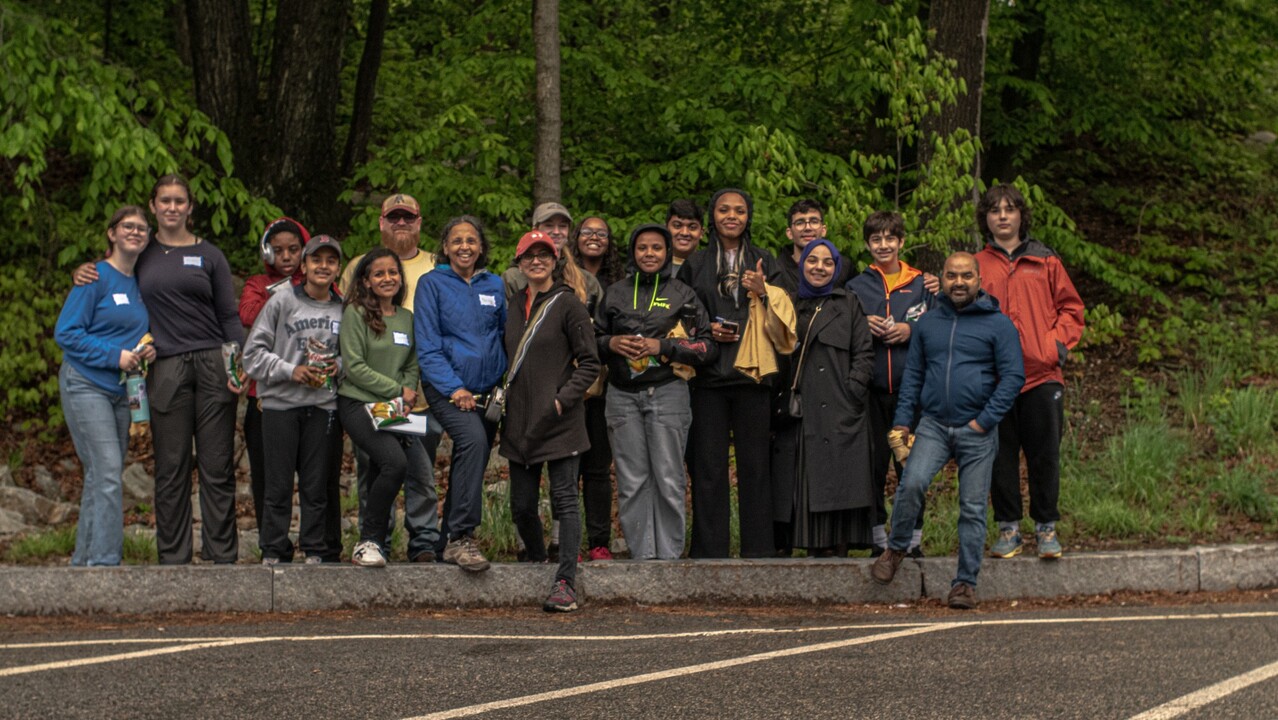
Why We Need to Invest in Interfaith Youth Programming
In a world where division and misunderstanding seem to be growing, it’s crucial that we invest in programs that bring people together—especially our youth. Interfaith programming is one of the most effective ways to bridge divides and build a more inclusive and understanding society. However, these programs often don’t receive the funding and support they need to thrive. It’s time for foundations, individuals, and organizations to step up and recognize the importance of investing in interfaith initiatives, particularly those that engage young people.
Youth represent our future, they’re the ones who will shape the world in the years to come. By involving them in interfaith programs, we give them the tools to navigate a diverse world with empathy, respect, and open-mindedness. These programs encourage young people to connect across religious, racial, and socioeconomic lines, helping them see beyond differences and work together toward shared goals.
At Mosaic: Interfaith Youth Action, we’ve seen the incredible impact of these programs firsthand. Through activities like dialogue, art, and service, we help young people engage with big questions about faith, identity, and community. The experiences they gain in our programs doesn’t just broaden their perspectives—they inspire them to be active participants in creating a more just and compassionate world.
Despite their proven benefits, interfaith youth programs are often underfunded and under-resourced. Many organizations doing this important work are operating on limited budgets, with minimal staff and infrastructure. Without adequate support, these programs can’t reach their full potential—or the full number of young people who could benefit from them.
This is where foundations, individuals, and organizations can make a real difference. By investing in interfaith youth programs, they can help sustain and expand these initiatives, allowing more young people to participate. Such investments are not just about supporting a single program—they’re about contributing to the long-term health and cohesion of our communities.
Supporting interfaith youth programming is about more than just immediate outcomes. It’s about laying the groundwork for a more peaceful, equitable future. When we help young people develop the skills and mindsets needed to thrive in a diverse world, we’re fostering the next generation of leaders—leaders who understand different religious traditions and are committed to promoting understanding and justice in their communities.
Interfaith programming also plays a crucial role in countering the rise of religious intolerance. By giving youth positive, constructive ways to explore their identities and connect with others, these programs help create a ripple effect of respect and empathy that extends into the broader society.
The need for investment in interfaith youth programming has never been clearer. These initiatives are essential to building a more inclusive and understanding world. I encourage foundations, individuals, and organizations to recognize the importance of this work and commit to supporting it.
At Mosaic: Interfaith Youth Action, we’re passionate about continuing our mission to foster empathy, unity, and understanding among youth from all backgrounds. But we can’t do it alone. We need partners and supporters who believe in the power of interfaith dialogue and are willing to invest in the future of our young people. Together, we can create a world where differences are celebrated and our common humanity is what brings us together.
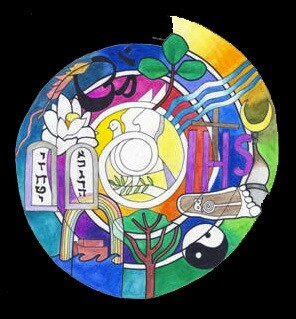
The Crucial Role of Philanthropy in Advancing DEI through Interfaith Organizations
In an era where the call for Diversity, Equity, and Inclusion (DEI) reverberates across all sectors of society, the role of interfaith organizations in fostering these values cannot be overstated. These organizations serve as vital conduits for dialogue, understanding, and cooperation among diverse religious and cultural communities. However, to fully realize their potential interfaith organizations require robust funding and support from philanthropic and foundational partners.
Interfaith organizations are uniquely positioned to address DEI issues because they inherently operate at the intersection of diverse identities and beliefs. They bring together individuals from different faiths, ethnicities, and backgrounds, creating platforms for dialogue that transcend traditional boundaries. Through educational programs, community service projects, and advocacy initiatives, these organizations work tirelessly to build bridges of understanding and cooperation.
Despite their significant impact, interfaith organizations often struggle with limited financial resources. This financial constraint hampers their ability to scale up operations, reach broader audiences, and implement comprehensive DEI programs. To address these challenges, there is an urgent need for increased funding from philanthropic and foundational partners.
With adequate funding, these organizations can expand their reach to underserved communities, ensuring that DEI efforts are both inclusive and far-reaching. This expansion is vital in addressing systemic inequities and fostering a more inclusive society. Financial support also enables interfaith organizations to develop and implement innovative programs. These initiatives can include leadership training for minority youth, interfaith dialogue workshops, and community-building events that celebrate diversity, all of which are essential for nurturing a culture of understanding and respect.
Long-term funding commitments are indispensable for the sustainability and growth of interfaith organizations. Stable financial support allows these organizations to plan for the future, invest in capacity-building, and effectively respond to emerging DEI challenges. Additionally, interfaith organizations play a critical role in research and advocacy related to DEI. Funding can support studies that provide valuable insights into the state of interfaith relations and the effectiveness of these strategies, while also empowering these organizations to advocate for policies that promote equity and inclusion.
Philanthropic and foundational partners are uniquely positioned to make a transformative impact through their support of interfaith organizations. Providing targeted grants for DEI initiatives within interfaith organizations ensures that resources are directed towards impactful programs, addressing specific challenges faced by different communities. Collaborative partnerships between philanthropic organizations and interfaith groups can further amplify the impact of DEI initiatives and foster a shared sense of purpose.
Investing in the capacity building of interfaith organizations enhances their ability to deliver effective programs, including funding for staff training, infrastructure development, and technology upgrades. Additionally, philanthropic partners can use their platforms to highlight the work of interfaith organizations and advocate for increased support for DEI efforts. This visibility can attract additional funding and support from other stakeholders, furthering the reach and impact of DEI initiatives.
As society grapples with the complexities of diversity and inclusion, interfaith organizations stand as beacons of hope and progress. Their work in bridging divides, fostering understanding, and promoting equity is invaluable. However, to sustain and expand this work, they require substantial support from philanthropic and foundational partners.
By investing in interfaith organizations, philanthropic entities can play a pivotal role in advancing DEI efforts, creating a more inclusive society, and ensuring that the principles of equity and justice are upheld for all. Now is the time for philanthropic partners to step up and make a lasting impact on the future of diversity, equity, and inclusion.

Confronting the Viral Nature of Hate: A Call for Collective Healing
In the wake of recent conversations with a close friend, I’ve been struck by the profound realization that hate — whether it manifests as antisemitism, Islamophobia, racism, or any other form of discrimination — operates like a virus within our society. It thrives on the construction of an “other,” a group perceived as fundamentally different or threatening. This recognition prompts a sobering question: Have we, as humans, unwittingly engineered this destructive force?
Throughout history, the seeds of hate have been sown through ignorance, fear, and the insidious need to delineate an “us” versus a “them.” Yet, upon closer examination, it becomes apparent that these divisions are not innate; rather, they are cultivated by societal structures, historical narratives, and deeply ingrained biases. Just as a virus mutates and spreads, so too does hate adapt to different contexts, infecting minds and poisoning communities.
The parallels between the spread of hate and the transmission of a virus are striking. Both thrive in environments of vulnerability, exploiting preexisting fractures within society. Just as a virus weakens the immune system, hate erodes empathy and compassion, leaving individuals susceptible to manipulation and prejudice. And much like a virus, hate can be transmitted through subtle cues, unconscious biases, and systemic inequalities, perpetuating its cycle of harm.
Yet, in acknowledging the viral nature of hate, we also recognize our capacity for intervention and healing. Just as we mobilize resources to combat a virus, so too can we work collectively to dismantle the structures that perpetuate hate. This requires not only individual introspection but also systemic change — a commitment to challenging entrenched prejudices, amplifying marginalized voices, and fostering genuine understanding across differences.
Crucially, confronting the viral nature of hate necessitates a paradigm shift in how we perceive and address discrimination. Rather than viewing it as a series of isolated incidents, we must recognize hate as a systemic affliction that requires systemic remedies. This means investing in education that promotes empathy and critical thinking, enacting policies that prioritize equity and inclusion, and cultivating communities that celebrate diversity rather than fear it.
As we grapple with the enduring legacy of hate, let us remember that we are not powerless in the face of this insidious force. By acknowledging our role in its creation and propagation, we reclaim agency over its eradication. Just as a vaccine bolsters the body’s defenses against a virus, so too can acts of kindness, solidarity, and justice fortify our collective resilience against hate.
In the end, our ability to confront and overcome the viral nature of hate rests on our willingness to confront the uncomfortable truths that lie at its root. Only then can we cultivate a society where the bonds of humanity transcend the artificial divisions of “us” and “them,” and where the virus of hate finds no fertile ground on which to thrive.
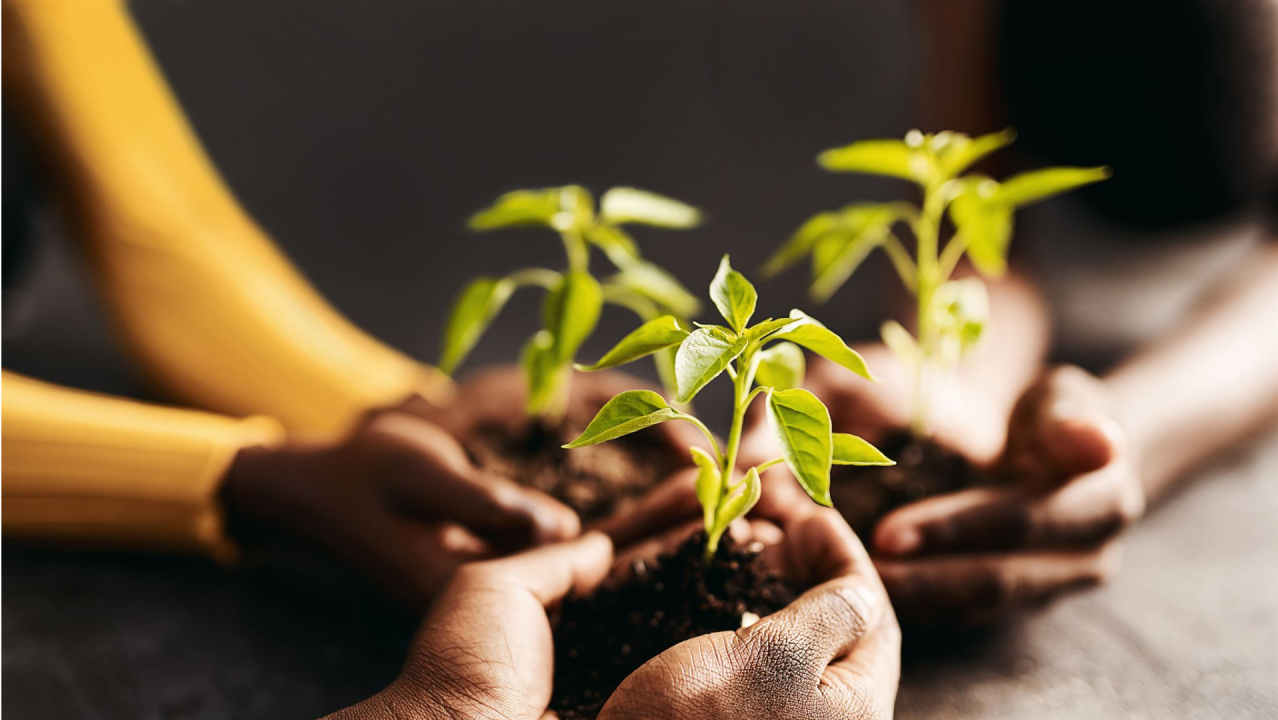
Fostering Harmony and Healing Through Youth Interfaith and Environmental Activism
In a world rife with division and discord, where headlines often highlight the chasms that separate us, it’s imperative to recognize the transformative power of unity. Nowhere is this more evident than in the field of youth interfaith work, where young people from diverse religious backgrounds come together to address pressing global challenges, particularly those related to environmentalism and climate justice.
The connection between faith and environmental stewardship is profound. Across religious traditions, there exists a shared reverence for the Earth and a responsibility to protect its delicate ecosystems. Whether it’s the Islamic concept of Khalifa (responsibility for stewardship), the Jewish principle of Tikkun Olam (repairing the world), the Christian call to be stewards of creation, or the Hindu principle of Vasudhaiva Kutumbakam (the world is one family), religious teachings underscore the interconnectedness of all life and the moral imperative to safeguard our planet for future generations.
Youth interfaith initiatives offer a unique platform for translating these teachings into action. By bringing together young people from different faith backgrounds, these programs foster dialogue, empathy, and understanding, dismantling stereotypes and fostering friendships across religious divides. Through shared experiences and collaborative projects, participants not only learn about each other’s beliefs but also discover their shared values and aspirations for a better world.
Crucially, youth interfaith work provides a fertile ground for engaging in environmental activism and advancing climate justice. As climate change exacerbates inequalities and threatens vulnerable communities worldwide, it is imperative that we mobilize young people to confront this existential challenge. By integrating environmental education and advocacy into interfaith programming, we empower youth to become agents of change in their communities and advocates for environmental justice on a global scale.
The benefits of this holistic approach are manifold. Not only does it galvanize youth to take meaningful action on environmental issues, but it also cultivates a sense of collective responsibility and solidarity across religious and cultural lines. Through tree plantings, clean-up initiatives, advocacy campaigns, and sustainable living projects, young interfaith activists are demonstrating that religious diversity and environmental sustainability are not mutually exclusive but rather mutually reinforcing.
Moreover, youth interfaith work offers a powerful antidote to the rising tide of polarization and extremism that plagues our world. By fostering interreligious understanding and cooperation, these initiatives build bridges of empathy and resilience, inoculating communities against the seeds of hatred and division. In a time when religious intolerance and xenophobia are on the rise, nurturing a generation of empathetic and compassionate leaders is not just a moral imperative but a strategic necessity.
As we confront the existential threats posed by climate change, it is clear that no single community or nation can tackle these challenges alone. We need a collective and inclusive approach that transcends borders and boundaries, uniting people of all faiths and backgrounds in a shared commitment to planetary stewardship and environmental justice. In this endeavor, youth interfaith work emerges as a beacon of hope, inspiring us to transcend our differences and work together for the common good.
In the words of the Dalai Lama, “The planet does not need more successful people. The planet desperately needs more peacemakers, healers, restorers, storytellers, and lovers of all kinds.” Youth interfaith work embodies this ethos, nurturing a generation of peacemakers and healers who are committed to building a more just, sustainable, and harmonious world for all
